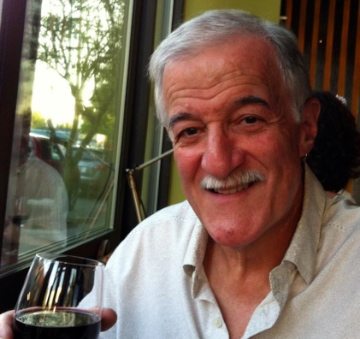The title of this post is the headline of an article in the Sunday February 3, 2013 New York Times. The article, written by Michelle Alexander, examines the issue of police not telling the truth, in their reports and in court. Ms. Alexander cites real cases and public statements by current and former police about this phenomenon. She begins the article with a question for jurors: who would you believe, a prisoner in an orange jumpsuit, or a well-groomed police officer in a snappy uniform?
I was in just this situation last year as a member of a jury. The criminal case involved a very pathetic family, and an accusation that the older brother had threatened and beaten the younger brother with a pellet gun. The younger brother was a 21-year old who had been a heroin addict since the age of 17. The older brother had an admitted problem with alcohol and drugs. The mom spent her days in her greenhouse, growing "medicinal herbs" (marijuana). The step dad had recently been laid off from his job. Each member of the family testified, and each testimony contradicted that of the other family members. A police officer also testified; he had responded to the 911 call made by the younger brother following the alleged incident.
The instructions given to us, the jurors, by the judge were very explicit. We needed to base our decision on the evidence presented at the trial, and the only evidence presented was the testimony of each person who was called to the stand. In other words, who did we believe most?
At the beginning of our deliberations, all of us agreed that we believed the police officer. We also all agreed that every member of the family was lying, and our job was to decide who was lying the least. We concluded that the accused brother was guilty of all but one count.
Something about this jury experience nagged at me. First, it was obvious from the outset in the jury room that many of my fellow jurors felt that they had more important things to do and wanted to get to a decision quickly so they could leave. I was bothered by this because, after all, we were talking about a person and whether or not he would do jail time. I felt strongly that all the witnesses, with the exception of the police officer, were lying about something - it was really that obvious. I was uncomfortable with the thought that we had to choose who we thought was lying the least.
I did not, at the time, give a second thought to the testimony of the police officer. I did, however, wonder why the officer had not taken the pellet gun as evidence and have it examined for finger prints and the younger brother's DNA, for example (have I seen too many TV cop and lawyer shows?). This did seem very odd at the time. There were other things that I thought the police might have, or should have done that could have provided some physical evidence for the trial, but I shrugged off those thoughts and focused on the lying game (not including the officer).
Were we jurors guilty of what Michelle Alexander calls out in her article? I think we were; we automatically assumed that a police officer would be telling the truth. This is not to say that in this case the officer was not telling the truth. This is a deeper issue, who should we trust, and should we always trust someone only because that person is in a position of authority? I think the answer is that we should basically, as the old cynical saying goes, trust no one.

No comments:
Post a Comment